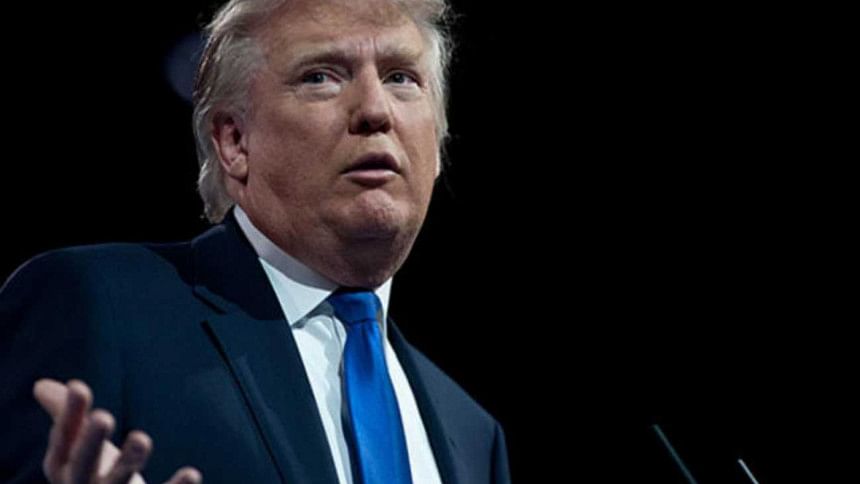Can US states right Trump's wrongs?

US President Donald Trump, with the help of a Republican-controlled Congress, is undermining many of the fundamental values that Americans hold dear. He is jeopardising their access to health care by seeking to repeal the 2010 Affordable Care Act ("Obamacare"). His budget proposes massive cuts in everything from early childhood education to food stamps and medical research. His tax reform plan, and especially its much lower top rate for "pass-through" business income, implies significant further redistribution of income to the wealthy.
Most recently, his misguided decision to withdraw from the Paris climate agreement jeopardises America's global standing. Worse, it puts the health and welfare of the planet at risk.
This is a good time to remember that the United States is a federal system, not a unitary state with an all-powerful central government (think France). Its system is enshrined in the Tenth Amendment of the US Constitution, which stipulates that all powers not expressly assigned to the federal government are "reserved to the states."
Traditionally, states' rights were invoked by southern states to defend slavery, and then nearly a century of Jim Crow (the legal framework for racial segregation), from federal interference, thereby preserving southern business owners' and farmers' control of their black labour force. More recently, socially conservative states have appealed to the Tenth Amendment to oppose progressive legislation and the expansion of federal powers more generally.
Now the tables have turned. Can Americans who oppose the contraction of social programmes and revocation of progressive federal legislation use states' rights to counter these trends?
Consider environmental policy. California already has its own relatively stringent standards for vehicle emissions. Fourteen other states have adopted those standards, which therefore cover 40 percent of the US population. Auto companies can't afford to produce two different sets of cars for states with strict and lenient emission rules. So California could well dictate emissions standards for the country.
Moreover, one can imagine California signing voluntary climate deals with China and other countries in an effort to restore the culture of oversight and accountability of the Paris accord. Indeed, the state's cap-and-trade carbon programme is the model for the carbon-trading scheme that Chinese officials are currently considering. It is worth recalling that California is the world's sixth largest economy, a fact that makes it a plausible interlocutor for environmentally conscious countries.
After that, however, it gets harder. The California State Senate just passed a bill to create a single-payer health plan without specifying how to pay for it. One possibility is a 15 percent payroll tax. Another is to plow Medicare dollars provided by the federal government into the plan. But it is unclear whether either approach is politically viable.
Like the residents of other "blue" (Democratic) states, Californians clearly prefer more spending on education and social services. The problem is that they are already subject to some of the highest personal income and business taxes in the country. Groups like the Howard Jarvis Taxpayers Association warn that further increases could lead to a massive exodus of businesses and jobs.
Two of my Berkeley colleagues, Emmanuel Saez and Gabriel Zucman, have come up with a two-part solution to this problem. First, they would tax the global profits of companies on the basis of the share of their sales occurring in California. Second, they would levy a modest 1 percent wealth tax on residents with assets of more than USD 20 million. Critics will warn of a brain drain, but do we really think that a 1 percent tax would convince, say, the venture capitalist Peter Thiel to pack up and move to New Zealand?
There are two scenarios – one benign, the other vindictive – for what another of my Berkeley colleagues, Laura Tyson, has called "progressive federalism."
In the benign scenario, people will club together in different states on the basis of their preferences for big or small government, public or private provision of services, and international cooperation or isolationism. Mick Mulvaney, Trump's budget director, has himself made the case. "If you live in a state that wants to mandate maternity coverage for everybody, including 60-year-old women, that's fine," And if you don't, "then you can figure out a way to change the state that you live in" or alter "state legislatures and state laws," in Mulvaney's words. "Why do we look to the federal government to try and fix our local problems?"
In the vindictive scenario, by contrast, Trump and the Congress could seek to limit progressive states' rights. They could prohibit use of Medicare funds for single-payer health plans. They could refuse to renew the waiver of Environmental Protection Agency regulations that allows California to impose its more stringent emissions standards.
They could invoke the Commerce Clause of the Constitution as part of an effort to prevent states from signing climate accords with foreign countries. They could eliminate the federal deductibility of state taxes to increase the cost of funding state programmes. They could curtail federal support for public services in sanctuary cities and states with immigrant-friendly policies.
We Americans are about to find out in which US, benign or vindictive, we now live.
The writer is a professor at the University of California, Berkeley, and the University of Cambridge. His latest book is Hall of Mirrors: The Great Depression, the Great Recession, and the Uses – and Misuses – of History.
Copyright: Project Syndicate, 2017.
www.project-syndicate.org
(Exclusive to The Daily Star)

 For all latest news, follow The Daily Star's Google News channel.
For all latest news, follow The Daily Star's Google News channel. 








Comments